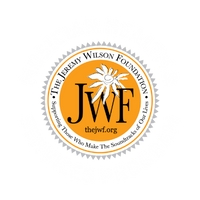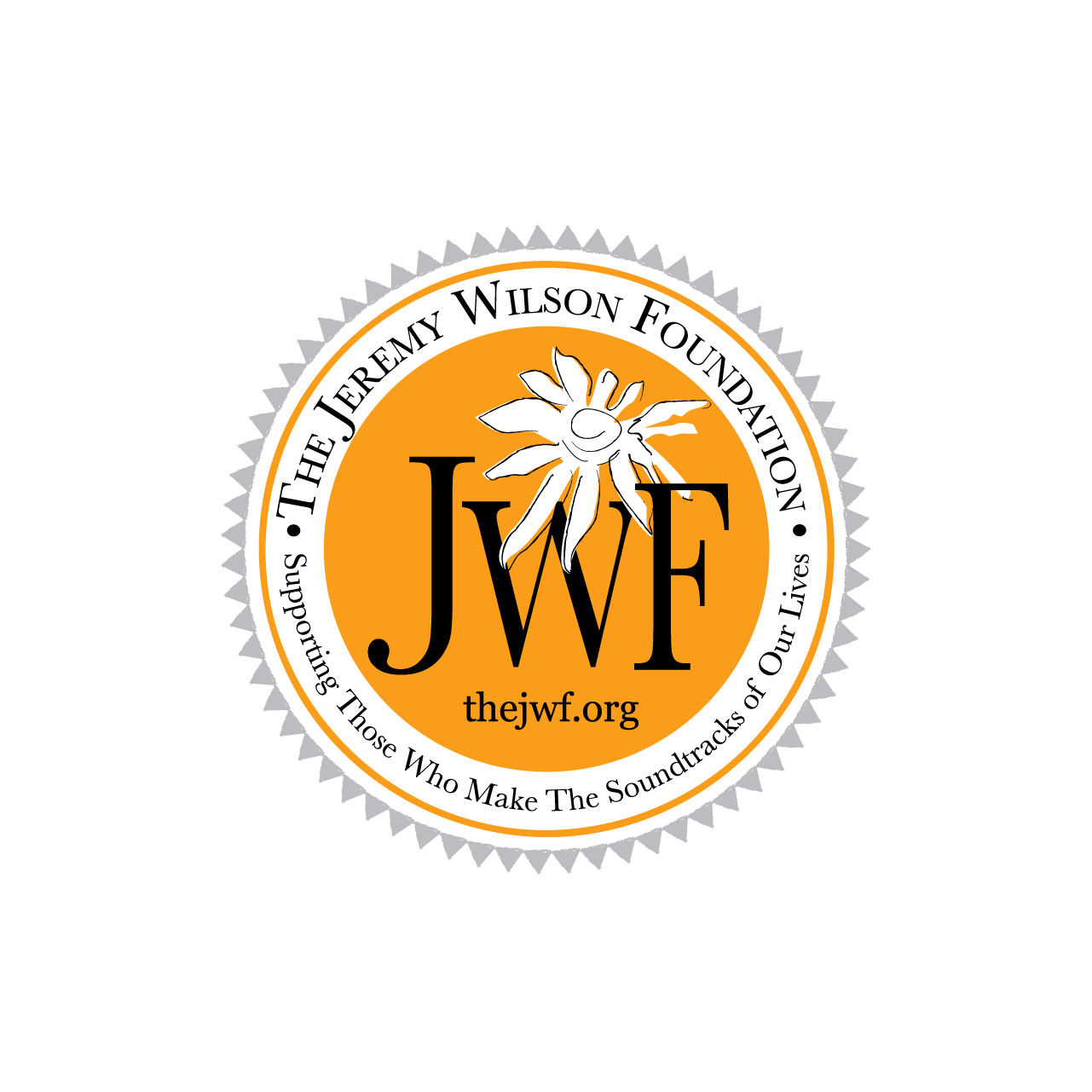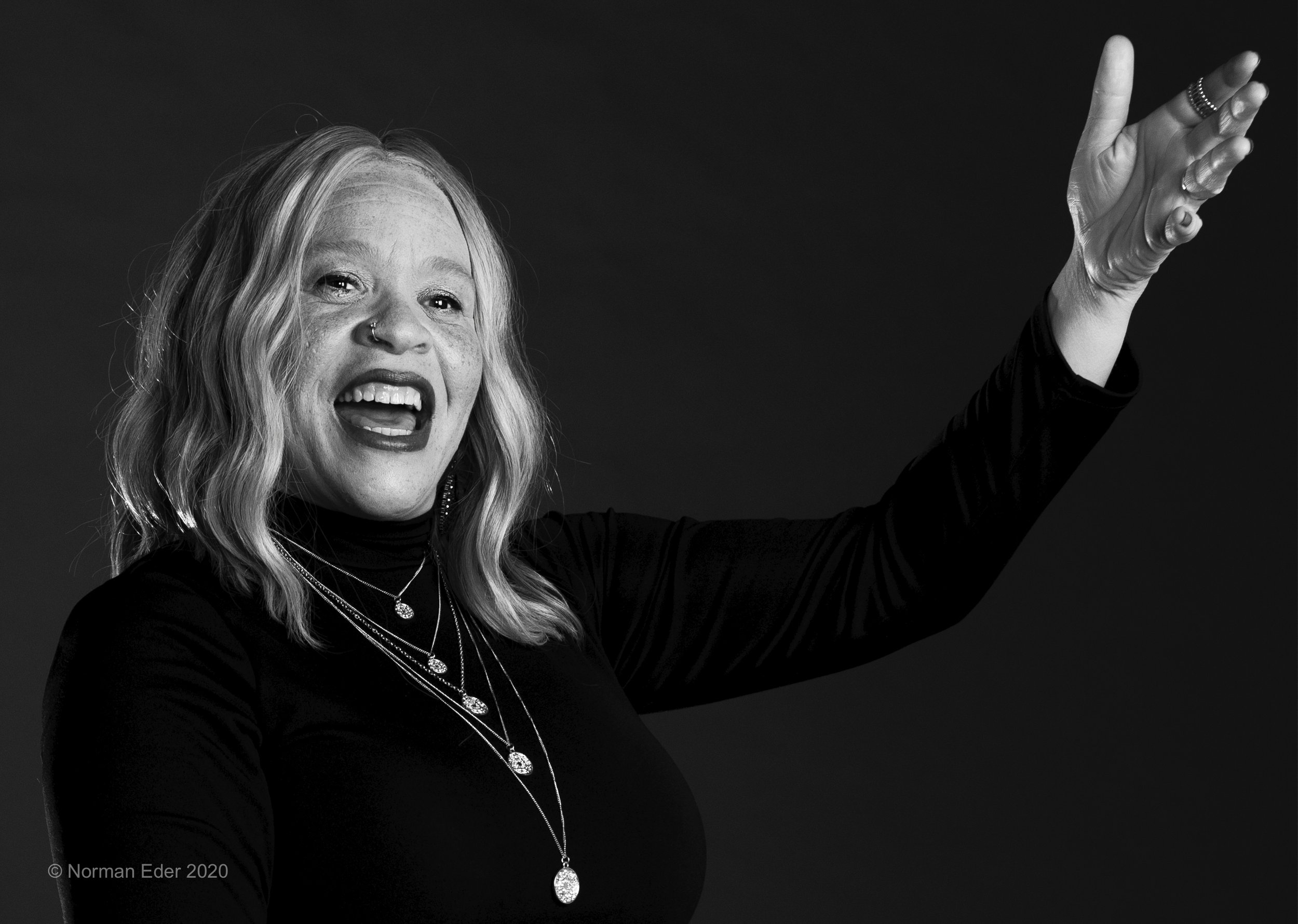What music means to LaRhonda Steele
LaRhonda Steele, the First Lady of Portland Blues, has been singing since she could talk. As a child, music was a bridge to acceptance. Now she helps others experience music as a bridge to fulfillment. “I want people to be able to express themselves . . . to find that joy, to find that purpose within themselves.”
By Claire Levine
For the young LaRhonda Steele growing up in Oklahoma, singing in the church choir was as normal as learning to walk.
Remembering being raised by a mother who sang in church, “That’s what you do. You sing in the choir.”
And music was all around her. Her mother and aunt, twin sisters, sang together in and out of church. And when it came time to change places of worship, LaRhonda and her sister started a youth choir in their new church.
A gateway into society.
Early in her life, singing became LaRhonda’s secret survival mechanism.
Music was, she said, “a way to commune with my fellow human beings. I was very shy, and as a person with albinism, I was on the outskirts of everything. Having albinism as well as being legally blind kept me isolated.”
Photo by Norm Eder
“I discovered early on,” she said, “that my music made people feel more comfortable approaching me. That’s just honest, especially when we’re talking about kids, teenagers.”
Singing, LaRhonda felt, made her more approachable. It was a way to encourage “people to talk to me. To not be picked on.”
From business school to the blues. LaRhonda had no formal musical training – and as a teen she wasn’t even aware of such a thing as a music degree. But in addition to loving music, she loves numbers a lot. So she studied accounting and other business courses in college.
When it came to finding work, she moved to Portland, where she had relatives. With a more robust business community than in her hometown and a good transit system, the city was more welcoming to a young, legally blind woman.
And she truly enjoyed the work she found in the Accounts Receivable department of a small business. She said she would “balance the accounts . . .sometimes it came down to finding one penny of an error, and I would just hunt and hunt. I just loved it! I love it when things balance!”
And of course, she started singing in her aunt’s church. And her aunt introduced her to others in the music community.
Her first public performance was at a major Martin Luther King’s Day celebration, which led to back-up singing with several Portland bands.
During a performance with one of those bands at the Waterfront Blues Festival, she stepped up to take a solo. It was there she caught the attention of Portland icon Norman Sylvester, who asked her, “Why are you singing background oohs and aahs instead of fronting a band?”
L-R Mark Bowden, Ned Failing, MaryEtta Callier, LaRhonda Steele, Greg Hyatt, Arietta Ward performing The Weight at the JWF’s annual event, The Next Waltz. Photo by Norm Eder.
And the rest is history. With that, LaRhonda stepped into the spotlight and Portland’s heart.
As bandleader, singer and writer, she has won countless honors, including Cascade Blues Association’s Best Female Vocalist for three consecutive years; member of both the Oregon and Cascade Blues Association’s Hall of Fame and the Oregon Folklife Networks Traditional Arts Apprenticeship Program.
She has been invited to perform on recordings of many of Portland’s nationally known artists across a spectrum of genres.
The Steele Family - Lo, Sarah, Mark and LaRhonda. Photo by Norm Eder.
She assembles her talented family for occasional Steele Family Band performances and generously volunteers her time and voice – including her spectacular annual performance of The Weight in The JWF’s Next Waltz.
Music as a force for love. As admired and respected as she is for her singing and musicality, LaRhonda is equally recognized for bringing people together in spirit.
For 10 years, she has organized and conducted the Portland Interfaith Gospel Choir and been music director of Portland Center for Spiritual Living: organizations where faith, love and music come together.
Remembering how music helped her overcome the isolation of her youth, she is eager to bring that musical connection to others. “I’ve been blessed to witness the opening of people’s souls and their hearts through Gospel music.
“Gospel music – there are so many styles of it, and there are so many ways to express through it: to express joy, to express sorrow, to express hope, to express righteous anger!”
She said, “that musical mode of expression is empowering. And it brings us together . . . a whole group of people who wouldn’t necessarily cross paths in everyday life.
“It’s the same thing with blues, the same thing with rock, the same thing with other styles of music. When we get together with such an eclectic group of musicians . . . you look at any group and you think, wow, how did these people get together?
“It’s music. Music is that bridge that transcends age and race and gender and all of that.”
In her life. “Music evokes, down to the cellular level. It evokes communion with God, communion with life. It evokes healing.
“Through my journey with breast cancer, beginning over 10 years ago, music, along with my family and friends and musical community, has kept me alive.
“Every time I get down, I start to think about music and life and the people who love me. It makes me get up, to remember who I am, and it makes me start to sing again and resonate with that energy – to commune with the Creator and life.”
Our gratitude. The Portland community of music lovers thank LaRhonda for all she does for us and what she means to us. And The JWF appreciates her ongoing support of The Musician Health and Services Program – another way to keep the music flowing and bringing us together.
If you’d like to learn where to hear her or the choir performances or listen to her recordings, visit her website.
Please join LaRhonda in celebrating The JWF’s 15th year by letting us know, what does music mean to you?
And we would love it if you would contribute to our end-of-year fundraising goal with a one-time or monthly donation to help local musicians. Thank you!





